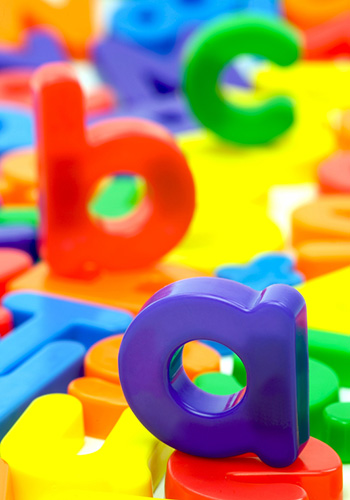How Can I Help with Early Years Spelling
When children first start to learn to read at school in KS1, the preferred practice to help them is through the use of phonics.
If you'd like a PDF version of this page, simply click Early Years Spelling PDF
Phonics revolves around the sound of words. Each word consists of phonemes (and sometimes graphemes) that, when heard, help young children understand pronunciation.
Understanding Phonemes and Graphemes
A phoneme represents the sound a grapheme makes. Graphemes can be one, two, or three letters. Two-letter graphemes are digraphs, and three-letter graphemes are trigraphs. Regardless of letters, a phoneme is the sound those letters make together. Let's illustrate with an example.
LEARN ABOUT THE BENEFITS OF LEARNING THROUGH QUIZZES
The word 'dog' has three one-letter graphemes: D, O, and G. It's a simple word for kids to learn. However, 'dough' is more complex. Children must learn that 'ou' is a two-letter digraph and has a distinct sound. Additionally, 'gh' (another digraph) has a separate sound from G and H, making various sounds in words like 'dough' (doe), 'cough' (coff), 'bough' (bow), and 'thought' (thort).

Can Phonics Aid in Spelling?
Phonics is an excellent method for enhancing children's reading skills. When taught effectively, phonics also provides a strong foundation for spelling words.
Consider the word 'cough.' If a child is taught that it's pronounced 'coff,' they might remember 'coff' rather than the correct spelling, 'cough,' when writing the word.
FIND OUT WHY KIDS LOVE OUR WEBSITE
Can Phonics Impede Spelling Progress?
Phonics alone can pose a challenge to spelling. However, when combined with other spelling techniques, it becomes a valuable tool.
Relying solely on phonics may assist children in reading, but their spelling proficiency is likely to be limited.
For a comprehensive guide to teaching children to spell, including discussions for and against phonics, read this article from Tes.
Explore Spelling Quizzes and Games
At Education Quizzes, we take spelling seriously! Our KS1 section offers 120 quizzes dedicated to spelling, separated by year. If your child is in Year 1 or Year 2 and needs practice, visit KS1 Spelling.
Alternatively, for a break from quizzes, try our Spelling Game, categorized by ages.
There's a weekly leaderboard, adding an extra layer of fun for children. See if your child can get their name on the board while watching their spelling skills improve!




